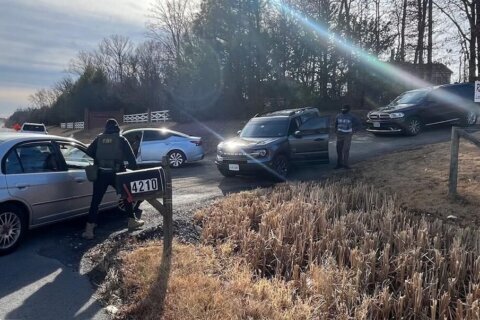This article was republished with permission from WTOP’s news partner InsideNoVa.com. Sign up for InsideNoVa.com’s free email subscription today.
This article was written by WTOP’s news partner InsideNoVa.com and republished with permission. Sign up for InsideNoVa.com’s free email subscription today.
Prince William County planners appear willing to back off proposed changes to rural areas in a potential win for conservationists.
The Board of Supervisors held its first extensive work session on updates to the county’s Comprehensive Plan during its meeting Tuesday.
The Comprehensive Plan is a guiding document for county land-use policies. While not committing the Board of County Supervisors to any decisions, it declares the county’s vision for future development.
The initially proposed revisions could threaten what’s known as the “rural crescent” – roughly 117,000 acres restricted to no more than one home for every 10 acres with strict prohibitions on the expansion of public sewer lines.
The majority of the county’s rural area is designated in the existing long-range land-use map as agricultural estate. The draft documents call for replacing that designation with agricultural and forestry, which would allow up to one home per five acres rather than one home per 10 acres.
While most of Tuesday’s work session focused on supervisors’ specific changes to the plan for their districts, the main point of contention came around the rural area.
Acting Planning Director Rebecca Horner said county staff supports reverting to the existing rules because the proposal wouldn’t achieve the county’s conservation goals.
Chair Ann Wheeler, D-At-Large, did not support one house per 10 acres or one house per five acres, saying it was “exclusionary zoning.”
“You can only build McMansions on it,” she said. “The lot itself is so expensive that people tend to build larger homes on it.”
Wheeler also said the increased density, without allowing public sewer, would increase the number of wells and septic tanks in the rural area, which is worse for the environment.
The disagreements came as the board was discussing density in the Vint Hill Road area.
Supervisor Jeanine Lawson, R-Brentsville, didn’t “buy [the] premise that it’s exclusionary.” She said clustering leads to sprawl.
“I don’t think that 10-acre lots are a problem,” she said. “I’m going to keep with my commitment to keep sewer out of the Vint Hill corridor.”
Wheeler supported allowing residential clustering in the area, which allows higher density and connections to existing power lines as long as 60% of the property is conserved as open space.
She said allowing one home per five acres would only lead to large plots being subdivided into five-acre lots with less conservation, which she called “egregious.” She said denying public sewer access, “something that’s been around since Roman times,” is “not appropriate.”
“I think clustering is the opposite of sprawl,” Wheeler said. “I think 10-acre lots is actually sprawl.”
Lawson said she and Wheeler need to hold a town hall in the area to hear from residents, which Wheeler seemed to interpret as a political ploy.
“You can always turn out people to say you don’t want development out there,” Wheeler said. “It’s our hard decision to say where we want to have growth.”
Lawson said, “I just think we owe it to the community to hear what they have to say.”
Wheeler eventually said “sure” to the town hall, but the spat continued.
“I know the people you’ll turn out. I know what you’ll do,” Wheeler said. “I’ve seen the emails you’ve sent out about people turning out to fight things.”
Lawson replied, “Madam chair, please don’t go there … I think we can have a civil town hall.”
The board discussed changes in various areas and generally offered suggestions. Supervisors advocated for more focus on affordable housing and a variety of housing options.
“Right now, we’re looking at a housing market that’s unsustainable,” said Supervisor Pete Candland, R-Gainesville. “I wouldn’t be able to afford the last two homes I lived in in Prince William County today.”
Candland and Wheeler advocated for revisions throughout the plan in some commercial districts to remove residential requirements where they didn’t make sense.
“I know we want mixed-use, but sometimes that’s not practical,” Wheeler said.
Supervisors Margaret Franklin, D-Woodbridge, and Andrea Bailey, D-Potomac, called for redevelopment of shopping centers along U.S. 1 and revitalization of historic areas, such as Batestown.
Bailey also said the area around U.S. Marine Corps Base Quantico needs a hotel, conference center and a grocery store.
County officials expect to provide the board with an updated version of the plan in around six weeks.







